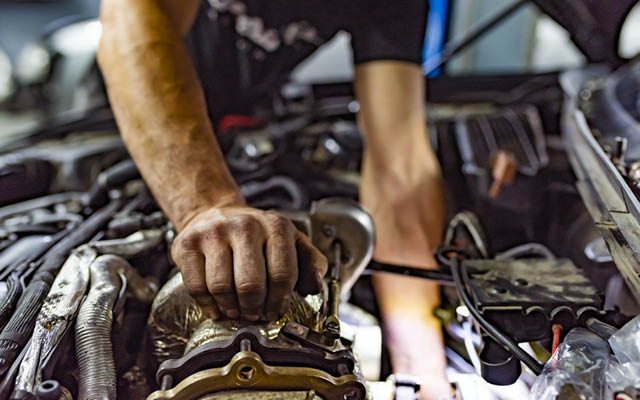
People of a certain age may recall the days when you could get underneath the hood of your car and fix what was ailing it. Most likely the carburetor needed a little tweak or the fan belt was getting thin. Some parts wore out more regularly than the others and, if you knew what you were doing, you could diagnose the problem and take care of it in the time it took to quaff a couple of beers.
I was never blessed with the kind of wrench skills my brothers routinely displayed, but just like a lot of my 1960s-era peers, I somehow absorbed an amorphous base of car knowledge that told me when the oil needed changing or the spark plugs were misfiring. Which was generally enough to keep my junkers on the road.
It’s been nearly 40 years now since I’ve attempted any automobile repair; car engines as well as their associated systems are simply too complicated for an amateur to navigate. When something goes completely wrong, you simply take it to people who understand what they’re doing.
I’ve been considering car repair lately in light of some major news from the longevity industry. Stanford University researchers a week ago released the results of a study suggesting that we need to completely rethink our concept of aging. Rather than simply deteriorating as a whole, they argue, your body actually ages at various rates — some systems faster than the others.
“Of course, the whole body ages,” lead study author Michael Snyder, MD, tells STAT News. “But in a given individual, some systems age faster or slower than others. One person is a cardio-ager, another is a metabolic ager, another is an immune ager. There is a substantial amount of difference in how individuals experience aging on a molecular level.”
This threatens to upend decades of research on molecular aging, that has focused on telomeres, epigenetics, and various other whole-body theories instead of on the function of individual systems. And Snyder and the team believe that identifying specific “ageotypes” in relatively healthy and young people would allow physicians to create targeted treatment protocols to head off chronic conditions his or her patients grow older.
“This really presents a new framework to think about aging,” says Northwestern University epidemiologist Norrina Bai Allen, MPH, PhD, who didn't participate in the study. “It’s an important first step toward showing how various areas of a body in different people can age at different rates.”
Working with 106 volunteers ranging in age from 29 to 75, researchers measured everything, including genes, blood proteins, metabolites, and microbes, over the course of two to four years. The data revealed aging molecules that fell into four specific ageotypes: immune, metabolic, kidney, and liver. And every functioned at various levels in every individual: A septuagenarian, for example, might have the immune system of a 30-year-old but a liver that chugs along like someone ten years older.
For all its revolutionary implications, the study’s small sample size and brief follow-up period cast some doubt on its conclusions. Still, the more I think about it, the more it makes me wonder whether the longevity industry is evolving in a way that’s eerily similar to car repair.
Snyder’s research may push antiaging experts, who once extolled the benefits of a whole-body, DIY approach to longevity (diet, exercise, etc.), toward a far more focused strategy requiring the intervention of highly trained professionals who can pinpoint specific problems and prescribe solutions. Your body is a complex organism, in the end. Why should ordinary folks be expected to keep it running smoothly beyond its warranty?
But, unlike a master mechanic, most physicians have few tools besides their prescription pad. So, rather than cruise back on the street with renewed vigor, geezers end up trudging to the pharmacy for more pills, simply hoping to hang on until the next appointment. This is slightly ironic, it seems to me, because we’re a lot more capable of fixing our bodies than our cars these days.
I can’t remember the last time I even peeked underneath the hood of my old Honda, but I have no trouble avoiding junk food, exercising regularly, managing my stress, and becoming plenty of sleep. None of this guarantees that I’ll cruise without incident into my 90s, but I’m betting it’ll keep my rusty chassis from the shop for the time being.



